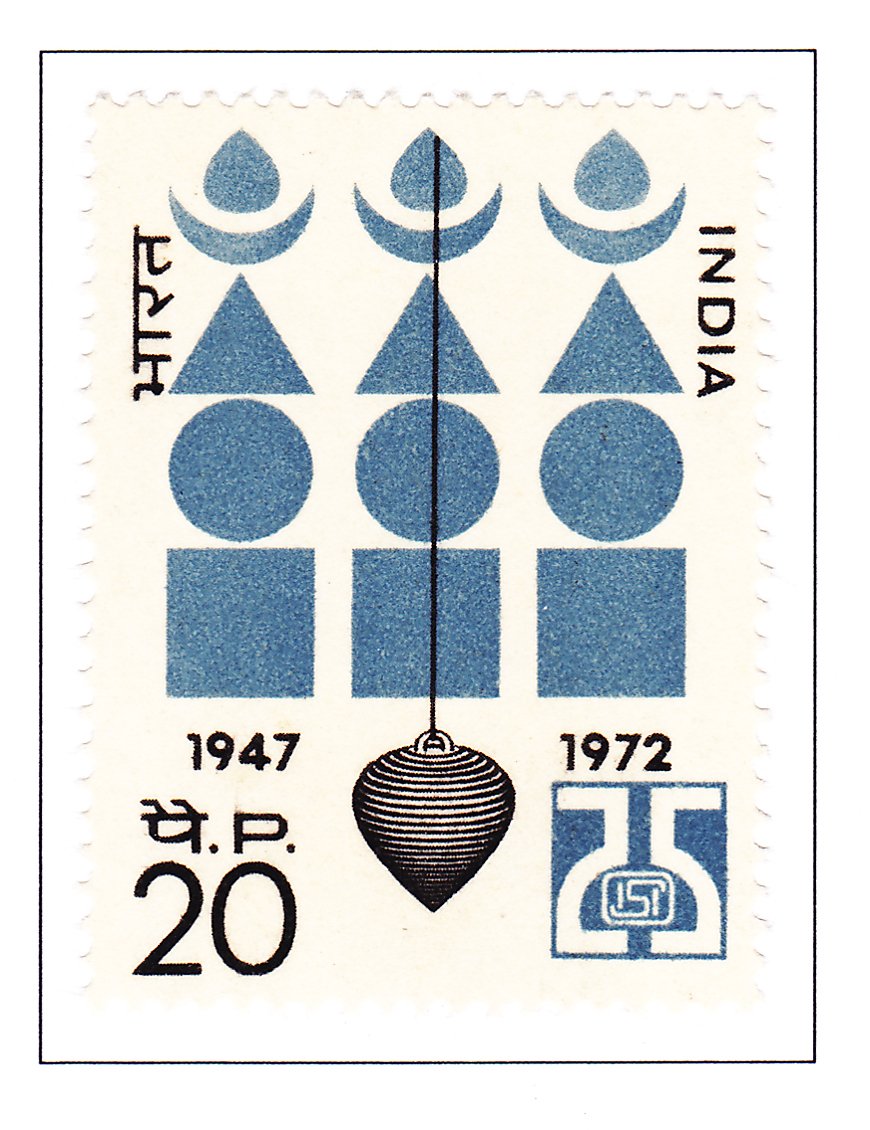Indian Standards Institution Silver Jubilee

Technical Data
| Date of Issue | May 19, 1972 |
|---|---|
| Denomination | 20 nP |
| Quantity | 3,000,000 |
| Perforation | comb 13 |
| Printer | Security Printing Press, Nashik |
| Watermark | No Watermark |
| Colors | Black | Turquoise grey |
| Catalog Codes |
Michel IN 536 Stamp Number IN 552 Yvert et Tellier IN 338 Stanley Gibbons IN 656 |
| Themes | Anniversaries and Jubilees | Symbols |
The Indian Standards Institution (ISI), established in 1947, played a pivotal role in shaping India’s industrial and technical landscape following independence. With the backing of governmental and industrial support, ISI’s objectives included the formulation of standards for products, materials, and processes, both nationally and internationally. By promoting standardization, quality control, and simplification of production and usage processes, ISI aimed to enhance the quality and efficiency of Indian industries.
As an autonomous body, ISI’s governance rested with the General Council, headed by the Minister in charge of the Government of India. The council comprised representatives from industry, central and state governments, and scientific and technical organizations. ISI’s funding came from government grants, member subscriptions, Indian Standards sales, and certification marking fees.
The institution formulated Indian Standards, which served as the national standards, through technical committees consisting of experts from various sectors. These standards aimed to benefit consumers by ensuring the quality and reliability of products. ISI’s Certification Marks Scheme provided consumers with assurance regarding product quality, as manufacturers adhering to Indian Standards could display the ISI Certification Mark on their products.
To support its standards, ISI maintained its laboratory for testing certified products and those seeking certification. Additionally, ISI curated a comprehensive library of standards and specifications from various countries, organized training programs, surveys, and conferences to aid Indian industries in implementing standards effectively.
Internationally, ISI collaborated with organizations such as the International Organization for Standardization (ISO) and the International Electrotechnical Commission (IEC), furthering standardization efforts. It also participated in the Commonwealth Standards Conference and extended training facilities to developing countries in Asia and Africa.
As ISI celebrated its 25th anniversary, commemorated by a special postage stamp, it reflected on its pioneering efforts in advancing standardization in India. Through its work, ISI played a crucial role in enhancing the quality, efficiency, and competitiveness of Indian industries on both national and international levels.
